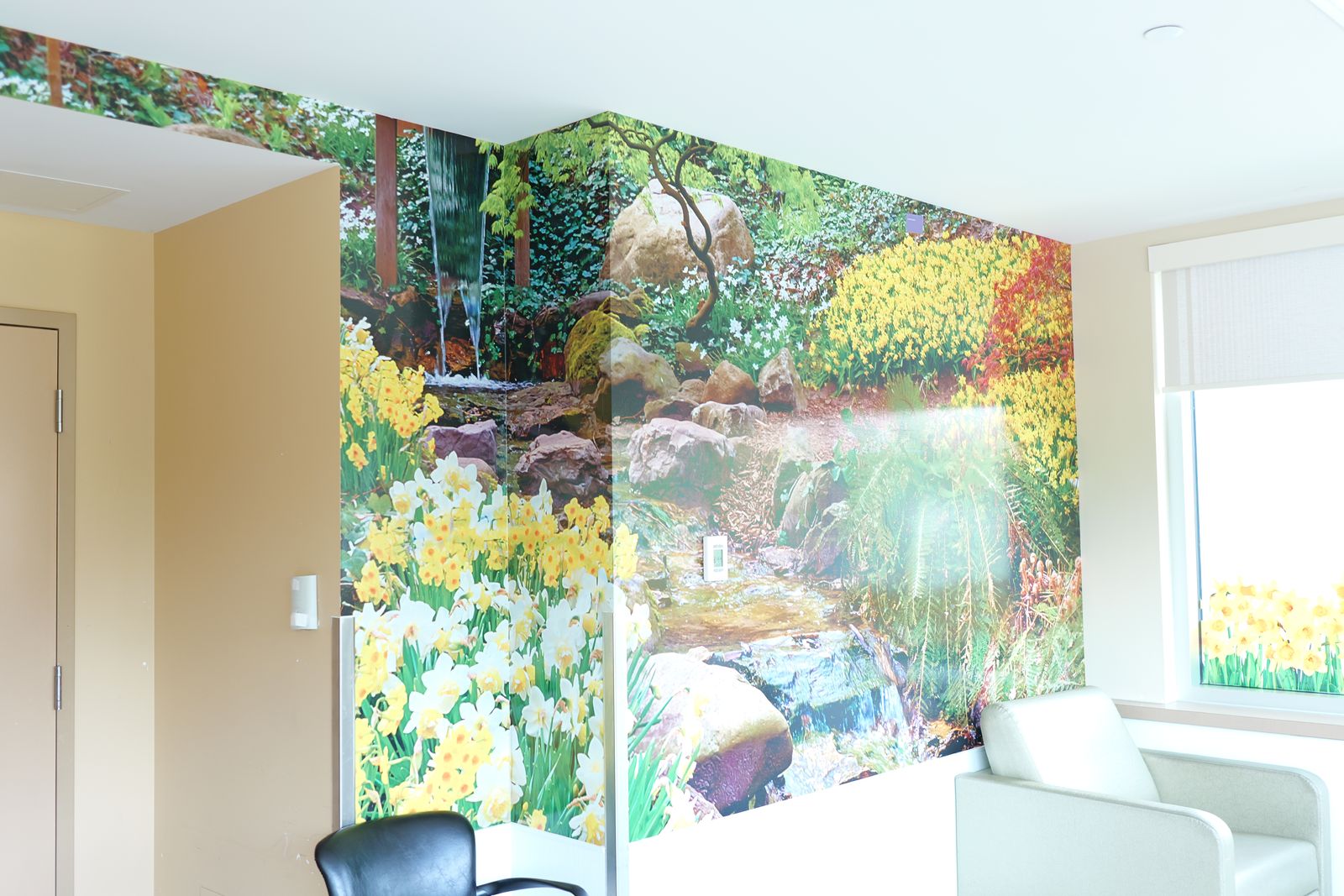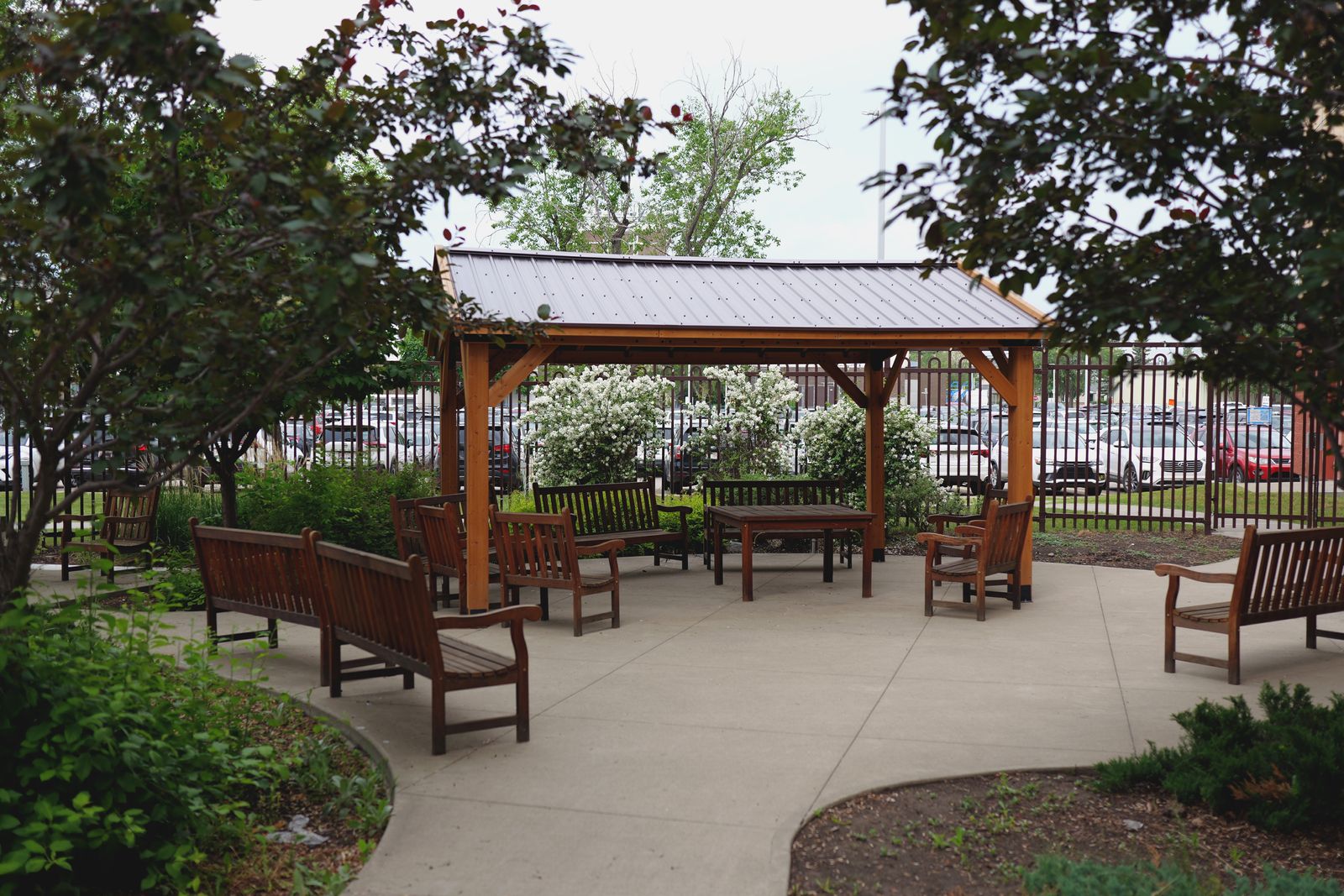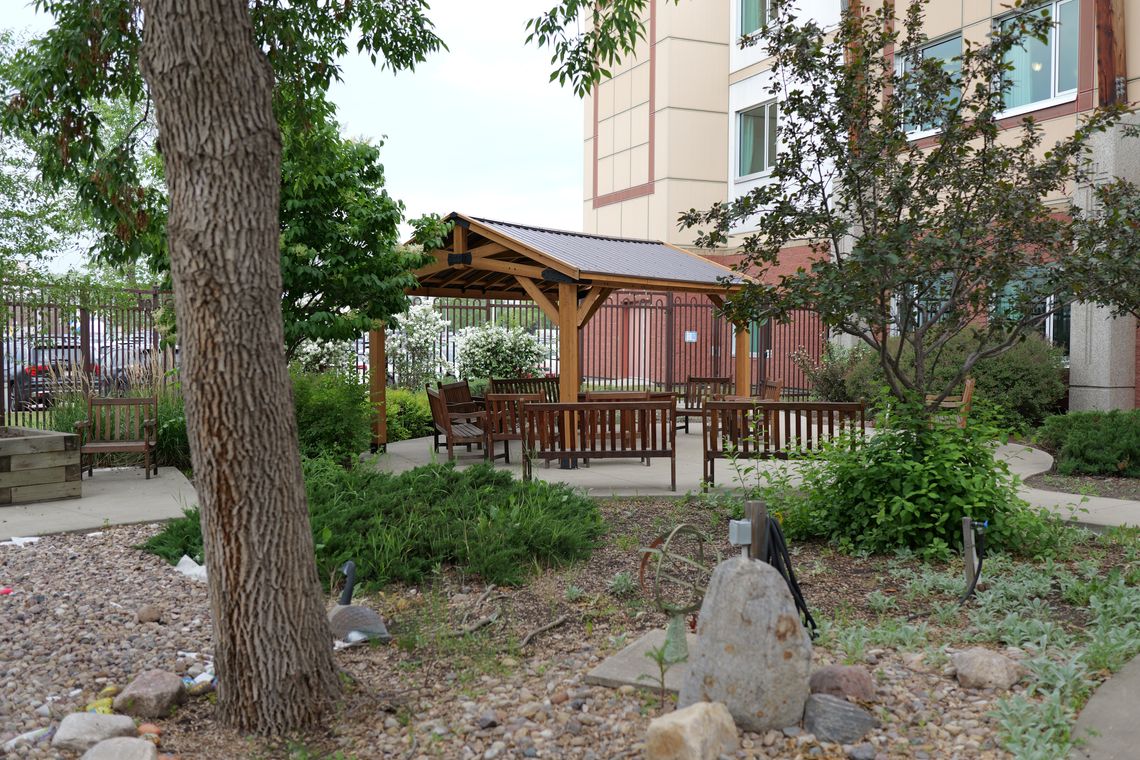
Imagine this: you’re visiting a loved one in a care facility. Instead of white walls and closed doors, you’re welcomed into a space filled with calming murals, light-filled common areas, and a garden shaded by gazebos where you can sit together in peace.
This environment isn’t an accident. It is made possible by generous donors through Covenant Foundation, whose support is helping transform Villa Caritas, Alberta’s only facility dedicated solely to seniors’ mental health, into a place where surroundings play an active role in healing.
“Many people mistakenly think of Villa Caritas as a care home,” says Keith Lang, program manager serving Villa Caritas. “But we’re actually a specialized acute inpatient facility with 150 beds dedicated to serving seniors experiencing cognitive impairment and/or mental health challenges.”


Care as unique as every senior
Every senior who comes to Villa Caritas has a unique story and distinct needs. Some live with dementia-related behaviours that require targeted medication adjustments and therapeutic treatments. Others manage conditions like depression, psychosis or anxiety that benefit from structured programming and supportive therapeutic environments.
Behind the scenes is a remarkable interdisciplinary team of psychiatrists, nurses, psychologists, dietitians, therapists, chaplains and volunteers working together to meet every layer of a patient’s needs – body, mind and soul. This whole-person approach to mental health care provides the foundation for recovery.
Thanks to donor generosity, that foundation is further strengthened by spaces and programs designed to enhance care and restore dignity, turning clinical settings into truly healing environments.
Spaces that spark recovery
Covenant Foundation is proud to support Villa Caritas. Because of our donors, key areas at Villa Caritas have been transformed into spaces where the environment itself supports healing. Murals brighten the hallways. Innovative light projectors engage patients in meaningful activity. And in the airing court, caregivers and patients find quiet comfort under the gazebos.
“These spaces are not just amenities. They are therapeutic and enrich recovery while supporting the workload of staff,” Keith notes.
Evidence shows that well-designed environments can significantly improve health outcomes for seniors, particularly those living with dementia or mental health challenges. Natural light has been linked to improved mood, reduced agitation, and better sleep, [1] while gardens and calming outdoor areas lower stress, support emotional well-being, and can reduce the need for medication. [2] Art and familiar imagery reduce anxiety and help orient patients,[3] while multi-sensory tools like light projectors stimulate cognition and calm restlessness. [4]
Because of donors, Villa Caritas is able to offer spaces that not only support clinical care but also restore dignity, calm, and connection for patients and their families.

Shifting the narrative on seniors’ mental health
Mental illness doesn’t just affect young people. Seniors across the province face mental health challenges that need your help.
“I wish more people understood that geriatrics and psychiatry are essential, growing in demand, and highly specialized fields,” Lang says. “With the right expertise, empathy, and passion, care becomes not only manageable but deeply rewarding.”
Donations to senior health ensures that this vision is lived out daily. Together, we’re shifting the narrative on seniors’ mental health from silence to hope.
Mental health is a key priority at Covenant Foundation. Your gift will help improve patients’ quality of life through specialized programs and enhanced spaces. Will you consider making a gift this Mental Illness Awareness Week?
[1] Ulrich, R. S. et al. “A Review of the Research Literature on Evidence-Based Healthcare Design.” HERD Journal, 2008.
[2] Marcus, C. C., & Sachs, N. A. Therapeutic Landscapes: An Evidence-Based Approach to Designing Healing Gardens and Restorative Outdoor Spaces, Wiley, 2013.
[3] Nanda, U. et al. “The Effect of Art on Visual and Verbal Responses of Patients with Dementia.” HERD Journal, 2012.
[4] Lancioni, G. E. et al. “Technology-Aided Programs to Support Positive Participation of Persons with Dementia and Alzheimer’s Disease.” Frontiers in Aging Neuroscience, 2016.
